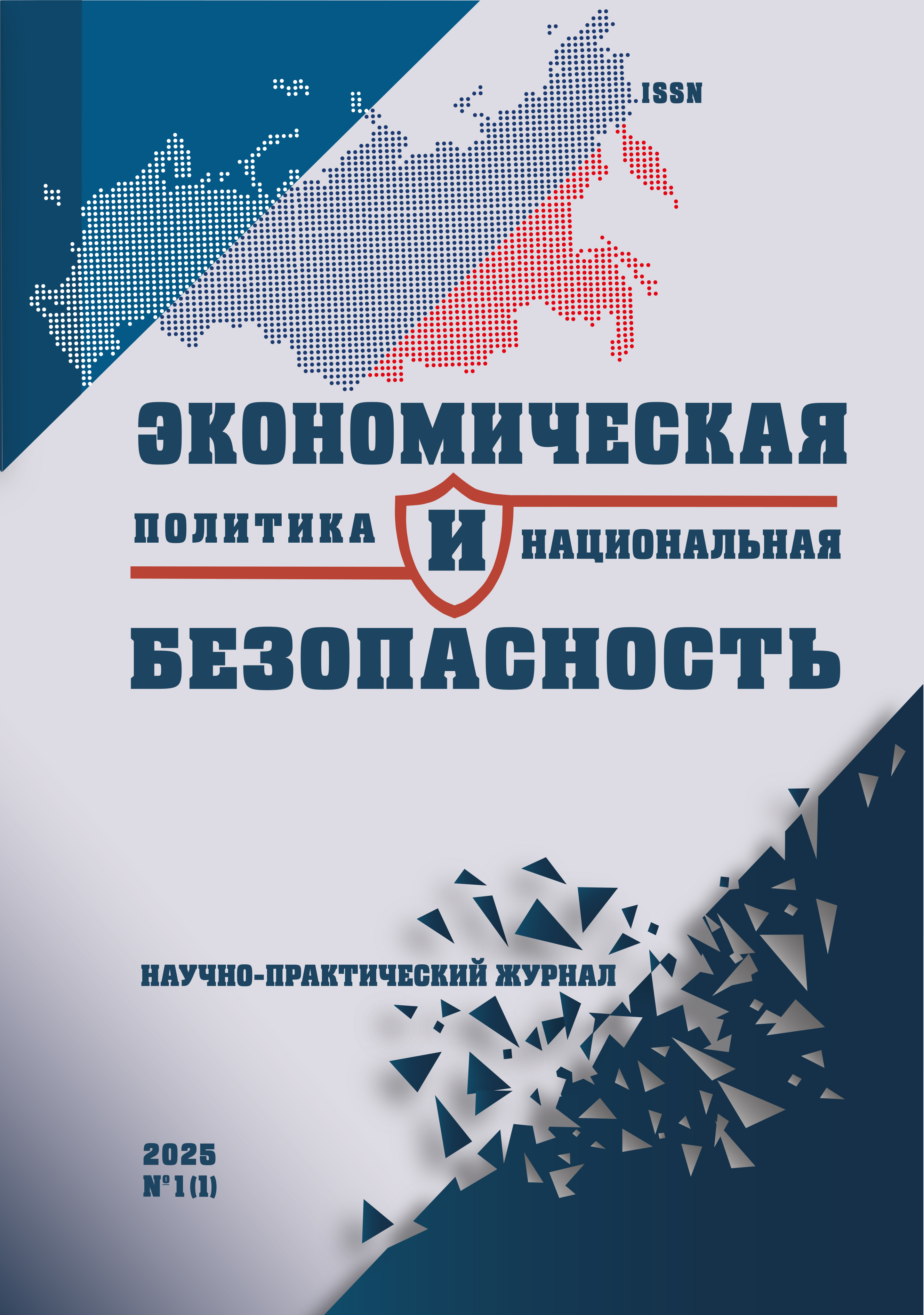St Petersburg, St. Petersburg, Russian Federation
Russian Federation
Introduction. A key issue in the investigation and prevention of offences in online businesses is the lack of transparency in all areas of their operations, including due to operating in other jurisdictions. Virtual platforms allow activities to be conducted from other countries and even under conditions of anonymity, which significantly complicates the process of detection and identification of offences. In addition, online businesses often operate under a lack of regulation. Although legislation is adapting to the new challenges of the digital economy, standardisation and control gaps remain. Methods. The methodological basis of this research was formed by general scientific methods – analysis, synthesis, deduction, induction and specific methods – matrix, questionnaire, and ranking. Results. The prerequisites for the study of criminal activity of online business participants have been revealed. The authors clarified the specifics of criminal activity in online business according to five criteria (prevalence; magnitude of damage; level of risk of being caught; speed of obtaining benefits; number of participants) and formulated the tasks and directions of development of digital forensics.
online business, criminal activity, business entity, offences, digital forensics
1. Avagyan, Anna A., Milena A. Mirzoyan, and Natalia A. Kabanova. 2024. “The problem of financial pyramids and modern methods of fraud in financial and cryptocurrency markets” [The problem of financial pyramids and modern methods of fraud in the financial and cryptocurrency markets] (In Russ.). Vestnik yevraziyskoy nauki [Bulletin of Eurasian Science] 16, no. s4. https://esj.today/PDF/05FAVN424.pdf.
2. Arzhenovsky, Sergey V., Andrey V. Bakhteev, and Tatiana G. Sinyavskaya. 2021. “A Kompleks mer po protivodeystviyu ugrozam natsional'noy bezopasnosti Rossii v sfere audita” [“Complex of Measures to Counter Threats of the Russian National Security in Audit”] (In Russ.). Finansovyye issledovaniya [Financial research] 72, no. 3 (March–April): 22–9.
3. Arkhipov, Danila D., Yulia Yu. Gartseva, and Viktor Yu. Miller. 2024. “K voprosu primeneniya tsifrovoy kriminalistiki v sovremennykh usloviyakh [“On the issue of applying digital forensics in modern conditions.”] Aziatskotikhookeanskiy region: ekonomika, politika, pravo [Asia-Pacific region: economics, politics, law] 26, no. 3: 158–68. https://doi.org/10.24866/1813-3274/2024-3/158-168
4. Vakutin, Artem A. 2020. ““Belovorotnichkovaya” prestupnost' E. Saterlenda: teoriya, ne poteryavshaya aktual'nosti” [““White-collar” crime of E. Sutherland: a theory that has not lost its relevance”] (In Russ.). Vestnik Sibirskogo yuridicheskogo instituta MVD Rossii [Bulletin of the Siberian Law Institute of the Ministry of Internal Affairs of Russia] 39, no. 2: 80–84. https://doi.org/10.51980/2542-1735_2020_2_80
5. Varaksa, Natalia G., and Flora F. Bekhbudova. 2023. “Finansovyye piramidy kak ugroza finansovoy bezopasnosti grazhdan” [“Financial pyramids as a threat to the financial security of citizens”] (In Russ.). In: Davydovskiye chteniya. Trendy i perspektivy tsifrovoy ekonomiki: finansovyye tekhnologii i bezopasnost' [David's readings. Trends and prospects of the digital economy: financial technologies and security], 177–85. Orel: Oryol State University named after I. S. Turgenev.
6. Vlasova, Svetlana V. 2023. “Teoretiko-metodologicheskaya model' protivodeistviya ekonomicheskoi prestupnosti v usloviyakh tsifrovizatsii” [“Theoretical and methodological model of the legal organization of countering economic crime in the context of digitalization”] (In Russ.). Voprosy rossiiskogo i mezhdunarodnogo prava [Matters of Russian and International Law] 13, no. 1A-2A: 334–41. https://doi.org/10.34670/AR.2023.66.92.043
7. Volovik, Alexander M. 2024. “Ekonomika iskusstvennogo intellekta: tendentsii, komplayens, global'noye vliyaniye” [Economics of artificial intelligence: trends, compliance, global influence] (In Russ.). Ekonomicheskaya bezopasnost' [Economic security] 7, no. 9: 2239–54. https://doi.org/10.18334/ecsoc.7.9.121752
8. Vorotnikova, Anna S. 2024. “Otdel'nyye zakonomernosti soversheniya sovremennykh ekonomicheskikh prestupleniy v kiberprostranstve” [Certain patterns of committing modern economic crimes in cyberspace] (In Russ.). Gumanitarnyye, sotsial'no-ekonomicheskiye i obshchestvennyye nauki [Humanities, socio-economic and social sciences], no. 12: 150–54. https://doi.org/10.24412/2220-2404-2024-12-5
9. Esakov, Gennady A., and D. V. Saushkin. 2020. “Umysel v nalogovykh prestupleniyakh i konstruktsiya prodolzhayemogo prestupleniya” [Intent in tax crimes and the structure of a continuing crime] (In Russ.). Ugolovnoye pravo [Criminal Law], no. 4: 15–20.
10. Falina, Natalia V., A. Yu. Kapliyev, and Kirill E. Shamrai. 2023. “Sovershenstvovaniye sistemy monitoringa kriminalizatsii ekonomiki v usloviyakh obespecheniya ekonomicheskoy bezopasnosti” [“Improving the system of monitoring the criminalization of the economy in the context of ensuring economic security”] (In Russ.). Yestestvenno-gumanitarnyye issledovaniya [Natural Sciences and Humanities Research] 49, no. 5: 265–71.
11. Fedotov, Artem A. 2023. “Ekonomicheskiye i inyye motivy v teoriyakh prichin prestupnosti” [“Economic and other motives in theories of the causes of crime”] (In Russ.). Mezhdunarodnyy zhurnal gumanitarnykh i yestestvennykh nauk [International Journal of Humanities and Natural Sciences] 84, no. 9-2: 243–49. https://doi.org/10.24412/2500-1000-2023-9-2-243-249
12. Filatova, Tatiana A., A. A. Dymshakova, and E. E. Lashmanova. 2024. “Rol' ekonomicheskoy ekspertizy v sisteme ekonomicheskoy bezopasnosti strany” [“The Role of Economic Expertise in the System of Economic Security of the Country”] (In Russ.). In: Aktual'nyye voprosy nauchnykh issledovaniy [Current issues of scientific research], edited by I. O. Boldyreva 331–42. Saratov: Amirit.
13. Yakovlev, Alexey N. 2018. “Tsifrovaya kriminalistika kak faktor zashchity tsifrovoy ekonomiki” [Digital forensics as a factor in protecting the digital economy”] (In Russ.). In: Kriminalistika v usloviyakh razvitiya informatsionnogo obshchestva (59-ye yezhegodnyye kriminalisticheskiye chteniya) [Forensic science in the context of the development of the information society (59th annual forensic readings)] 325–31. Moscow: Academy of Management of the MIA of the Russian Federation.
14. Becker, Gary S. 1968. “Crime and Punishment: An Economic Approach.” Journal of Political Economy 76, no. 2 (March-April): 169–217.
15. Kiliç, Burcu I. 2020. “Effects of Big Data on Forensic Accounting Practices and Education.” Contemporary issues in audit management and forensic accounting, 102: 11–26. https://dx.doi.org/10.1108/s1569-375920200000102005
16. Sutherland, Edwin H. 1947. Principles of Criminology (4th ed.) 645. Philadelphia : J. B. Lippincott Company.







